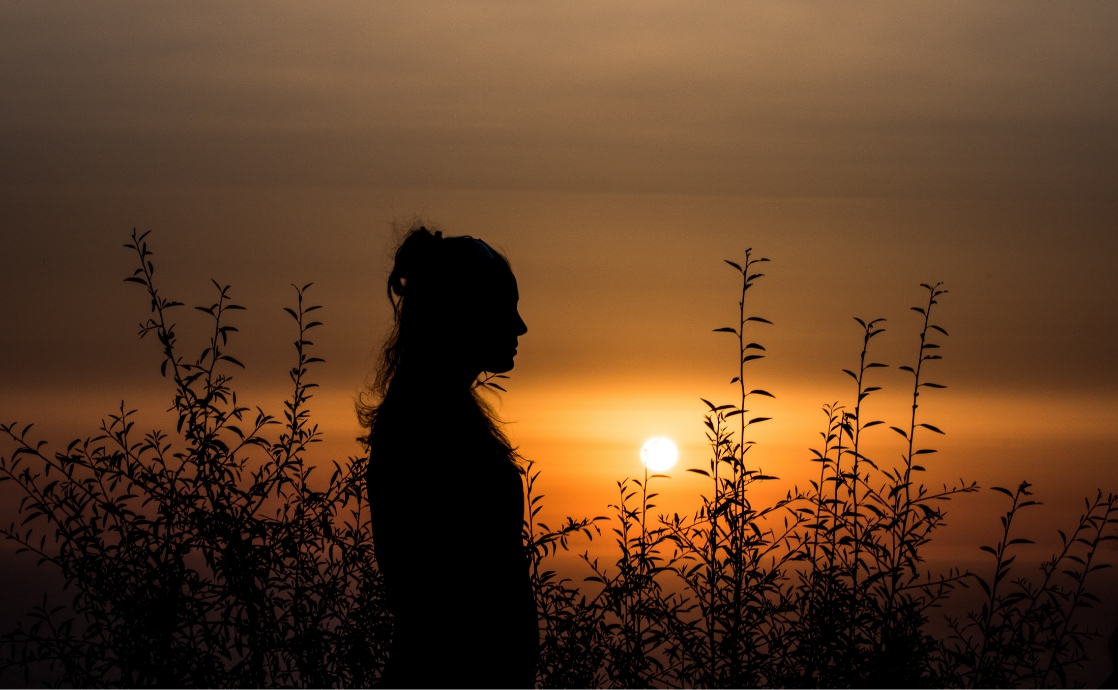The views expressed in our content reflect individual perspectives and do not represent the authoritative views of the Baha'i Faith.
In our spiritual journey to attain the attributes of God, our souls either consciously or unconsciously seek their Creator—instinctively, the soul searches for its source.
Deep within us there is the feeling that something is missing in our lives, and the longer we live the more we notice it. We look around at the world and ask ourselves if this is all there is, and we may begin to suspect that what we seek is not in this world.
We may set many goals for ourselves in life, but the most significant is the goal of finding out why we are here.
In the beginning we search without any idea of what we might be seeking; we may not even realize that we are searching. We wander about in every direction, looking for a trace of the thing for which our souls long. This search can take many forms, particularly if we do not realize what we are looking for.
We may find ourselves devoted to an important social issue or problem, giving it a central place in our lives and focusing on it to the exclusion of all else. Or we may pursue a less altruistic path and put our energy and devotion into things that are more self-indulgent and hedonistic—things that distract our attention from our craving for God’s love. We may travel down many paths, make many false starts, and find ourselves at many a dead end, but if we learn from the journey, we grow spiritually from all of these experiences. In seeking traces of our Creator we learn patience, because the search takes as long as it takes. Finding the Source of our existence is like a treasure hunt—there can be mishaps along the way and the map is not always clear, but with patience, ingenuity, and effort, the treasure can eventually be found:
Spiritual progress is through the breaths of the Holy Spirit and is the awakening of the conscious soul of man to perceive the reality of Divinity. Material progress ensures the happiness of the human world. Spiritual progress ensures the happiness and eternal continuance of the soul. – Abdu’l-Baha, The Promulgation of Universal Peace, p. 142.
When the time is right, through the grace of God, we at last find our Creator. The process by which this happens is different for each person, reflecting the many ways that we can receive God’s love and guidance. For some, constant prayer and meditation may open up a sudden path toward the Creator. For others, a dramatic experience in life—be it the death of a family member or the birth of a child—may flip that switch. For some, being of service to others may connect us to God.
We feel joyous, for we have found the love of God. We no longer wander aimlessly but direct our steps toward our heart’s desire. We find ourselves filled with love, and we discover that the more we love God, the more we feel God’s love for us. Little by little, as the Baha’i writings indicate, we come to understand that God’s love was always there, waiting for us to open ourselves to it:
Love Me, that I may love thee. If thou lovest Me not, My love can in no wise reach thee. Know this, O servant. – Baha’u’llah, The Hidden Words, p. 4.
That part of our spiritual being which was latent within us awakens and begins to develop, and we draw closer to God. Eventually, we become consumed in our love for God. From this we begin to know the meaning of true love. The Baha’i teachings describe this state of being:
Those souls whose inner being is lit by the love of God are even as spreading rays of light, and they shine out like stars of holiness in a pure and crystalline sky. For true love, real love, is the love of God, and this is sanctified beyond the notions and imaginings of men. – Abdu’l-Baha, Selections from the Writings of Abdu’l-Baha, p. 203.
Eventually, we may begin to compare what we feel within us with what we see around us. More than ever, we notice the disparity, and feel the discontent.
We may conclude that this world is not a very spiritual place, for it seems to lack the love we hold in our hearts. The cruelty, injustice, and suffering we see around us become intolerable, like never before. We cannot understand their purpose, and we may ask ourselves why God allows these things to happen.
There doesn’t seem to be an answer to this question, and even in the midst of love, whenever there is no answer, there is doubt. However, the question itself reveals something of the limitations of the one who asks, because it implies that God is somehow indifferent.
But we know this is not the case. As we grow spiritually, we begin to ask better questions. We ask, Who has caused the cruelty, injustice, and suffering in the world? The answer is that humankind has caused it and allowed it to happen. God has given us free will to make choices, and we have chosen at times to be cruel, unjust, and indifferent rather than kind, equitable, and caring. We come to realize that we are not alone in the process of spiritual growth and that we all have different lessons to learn:
The only real difference that exists between people is that they are at various stages of development. Some are imperfect—these must be brought to perfection. Some are asleep—they must be awakened; some are negligent—they must be roused; but one and all are the children of God. Love them all with your whole heart; no one is a stranger to the other, all are friends. – Abdu’l-Baha, Paris Talks, pp. 170-171.
At this stage in our spiritual journey, doubt is gradually replaced with understanding. We begin to see that the will of God encompasses more than just love, that there is much more to learn than this. The pain inherent in love must become tempered with knowledge; we must pass beyond blind faith toward a more educated and informed faith, able to reconcile the nature and limitations of this world. The Baha’i teachings exhort us to move on to this stage, saying:
Pass beyond the baser stages of doubt and rise to the exalted heights of certainty. Open the eye of truth, that thou mayest behold the veilless Beauty and exclaim: Hallowed be the Lord, the most excellent of all creators! – Baha’u’llah, The Hidden Words, p. 25.
In the process, we acquire new concepts and a spiritual vocabulary, which allow us to begin to understand why things happen and not merely how they happen. The spiritual journey requires more than just direction; we not only need to know where we are going but also why we are going there. We undertake that spiritual journey to discover the will of God.
















Comments
Sign in or create an account
Continue with Googleor